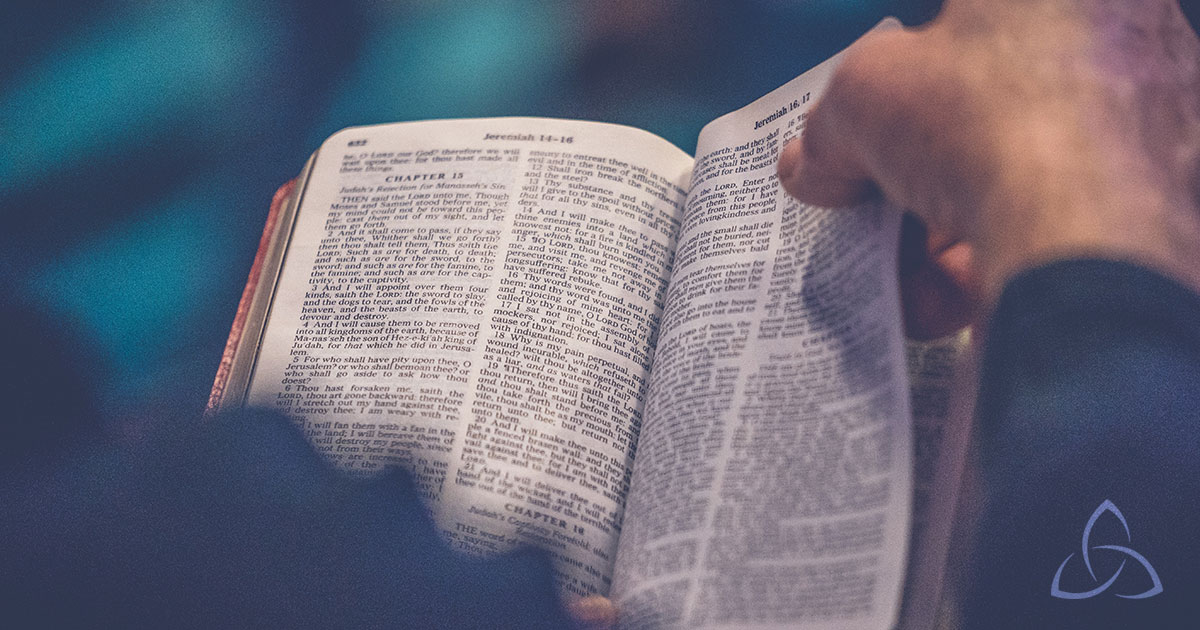
The phrase “new normal” terrifies me. New and normal feel mutually exclusive. If it’s new, how could it be normal? The reality is that I find myself a little frightened of what that new normal might be. What will not be the same after things go back to “normal?”
My family went through big changes just a few years ago. We had lived in the same place and worked the same job for 20 years, but we felt God calling us elsewhere. So, we took a new job and moved.
Everything changed – our house, our lifestyle, our family dynamic, our involvement in the lives of others in ministry, and our proximity to family. It was hard, and we wondered, why did we ever decide to move? We found ourselves looking back at all that was behind us and wishing that all that we lost would be restored.
Time goes forward, and things lost are seldom if ever recovered. We had to embrace a new normal.
People are talking about how our current global crisis is going to change our lives permanently. Although we don’t know what is coming, we all need to get ready for the new normal. What is going on inside of you as you prepare for the coming unknown?
We find in the Bible that our fears about the future have already been anticipated by our tenderhearted Father, experienced by his people in the past, and perfectly addressed to calm our raging anxieties.
In Psalm 80 God speaks to our grief about what we have lost and fears about what lies ahead.
Asaph wrote to people being forced to pick up the pieces after a national catastrophe. At the time of his ministry, the nation of Israel had been split into two kingdoms: The Northern Kingdom of Israel and the Southern Kingdom of Judah.
Details in the text of Psalm 80 lead commentators to place the writing of the psalm during the aftermath of the fall of the Northern Kingdom of Israel to the Assyrians in 722 BC.
While their families and friends were carried off into exile, refugees from the Northern Kingdom fled to the Southern Kingdom of Judah, and everything changed for them.
Out of his grief at their overwhelming state of affairs, Asaph pled for God to act on their behalf, and three times (v 3, 7, 19) he repeated the same refrain:
Restore us, O God; make your face shine upon us, that we may be saved.
Asaph’s prayer was for God to restore their world, their lifestyle, their fortunes, and their families. He asked God to save them.
Yes and No. What Asaph requested, God surpassed. God answered a prayer bigger than Asaph actually prayed. What Asaph thought he wanted, God bypassed for blessings much larger, more extensive, and more permanent than Asaph ever intended.
Asaph’s prayers were for the nation of Israel to be restored to their previous state, but God’s intent was for his salvation to extend beyond Israel to people from every tribe, tongue, and language.
And God’s intent was not just the restoration of what was lost in the exile of the Northern Kingdom but of everything that has ever been lost since the beginning due to the brokenness of the world.
I think that the key is found in verse 17:
But let your hand be on the man of your right hand, the son of man whom you have made strong for yourself!
By “son of man,” Asaph, in his limited foresight and prayers, probably referred only to the current king of Judah, whom he hoped would be able to lead Israel to safety with God’s help, but God answered the prayer that Asaph would have prayed if his vision and heart were as loving and redemptive as our Heavenly Father’s.
Son of Man was the most common moniker that Jesus used in referring to himself as the man that God the Father had promised to send into the world to redeem the whole world from every evil, calamity, and threat.
Jesus said,
God did not send his Son into the world to condemn the world, but in order that the world might be saved through him. The Son of God became the Son of Man to redeem, to save and restore his people.
Asaph probably had no idea how his heartfelt prayers expressed deeper truths about God’s outpouring of grace in Jesus. He began his prayer by appealing to the Shepherd of Israel to come to save them.
In answer Jesus says, "I am the good shepherd. The good shepherd lays down his life for the sheep." He died so that we might live. Our shepherd came to restore our relationship with God by saving us not just from the Assyrians but from sin.
In verses 8-16, Asaph recounted the history of God’s presence with Israel and asked God to restore the vine, which he understood to be the recipients of God’s affections.
All who were part of the vine of God’s people were blessed by God. Jesus took up this image, saying,
I am the true vine, and my Father is the vinedresser. I am the vine; you are the branches. Whoever abides in me and I in him, he it is that bears much fruit, for apart from me you can do nothing.
Jesus is the fulfillment of the imagery of the vine. All of God’s blessings come to us through him.
It’s an image of God’s grace and blessings. His face shining upon us means that He knows us, he loves us, he gives us all that we need.
Asaph knew that when God’s face shines upon his people, all is right with the world. If that happens, then they will be restored. They will be saved. All that is good and right with the world comes from him.
The Apostle Paul understood this and wrote in 2 Corinthians 4 that God has shone
in our hearts to give the light of the knowledge of the glory of God in the face of Jesus Christ.
We have Jesus! He is the answer to Asaph’s prayers for God’s restoration, salvation, and light. The fullness of God’s blessing and the answer to all of our prayers came at the hands of the Son of man.
During his ministry 2000 years ago, he secured our salvation and brought all of God’s blessings to us.
Every promise of God is yes and amen in Jesus. The Lord God Almighty surely heard Asaph’s prayer, and his heart was so large and generous and gracious that he answered that prayer in a bigger and more extensive way than Asaph could have imagined.
He planned to restore the whole world and to extend his grace to people from every tribe and tongue and language!
God’s great desire is to restore all things. Revelation 21:
Behold, I am making all things new. I will make a New Heavens and a New Earth.
That is his promise: a NEW normal in the future, when all is made right, all is made well, and all is once again whole. He promises the full restoration of all things.
We don’t need someone who is just going to restore the past. We need someone who is going to restore everything. We need the world, our communities, and our own hearts to be restored.
Yes, our lives will probably change as a result of the Coronavirus, but we have a God whose blessings far outweigh all of the hardship we face and exceed all the prayers that we can utter.
That is the power of the hope of the gospel: God has demonstrated his love and commitment to us by sending his Son for us and to us.
Even if the present situation brings trials and hardships that are, as Paul says, far beyond our ability to endure, yet in the end we know that God has promised us an eternal weight of glory, and happiness, and prosperity, that far outweighs anything that we might face here.
We may face hardship at present, but he hears all of our cries and prayers and intends to answer them better than we could ever speak them. And these better blessings lie ahead and not behind.
A new normal? The gospel bids us to pray for it, to long for it, and to hope for it.
These Stories on Quarantine

4221 W. Gulf to Lake Hwy
Lecanto, FL 34461
Phone: (352) 746-6200
Fax: (352) 746-6299
Email: info@sevenrivers.org
Office Hours:
M-F: 8:30 AM - 4:30 PM